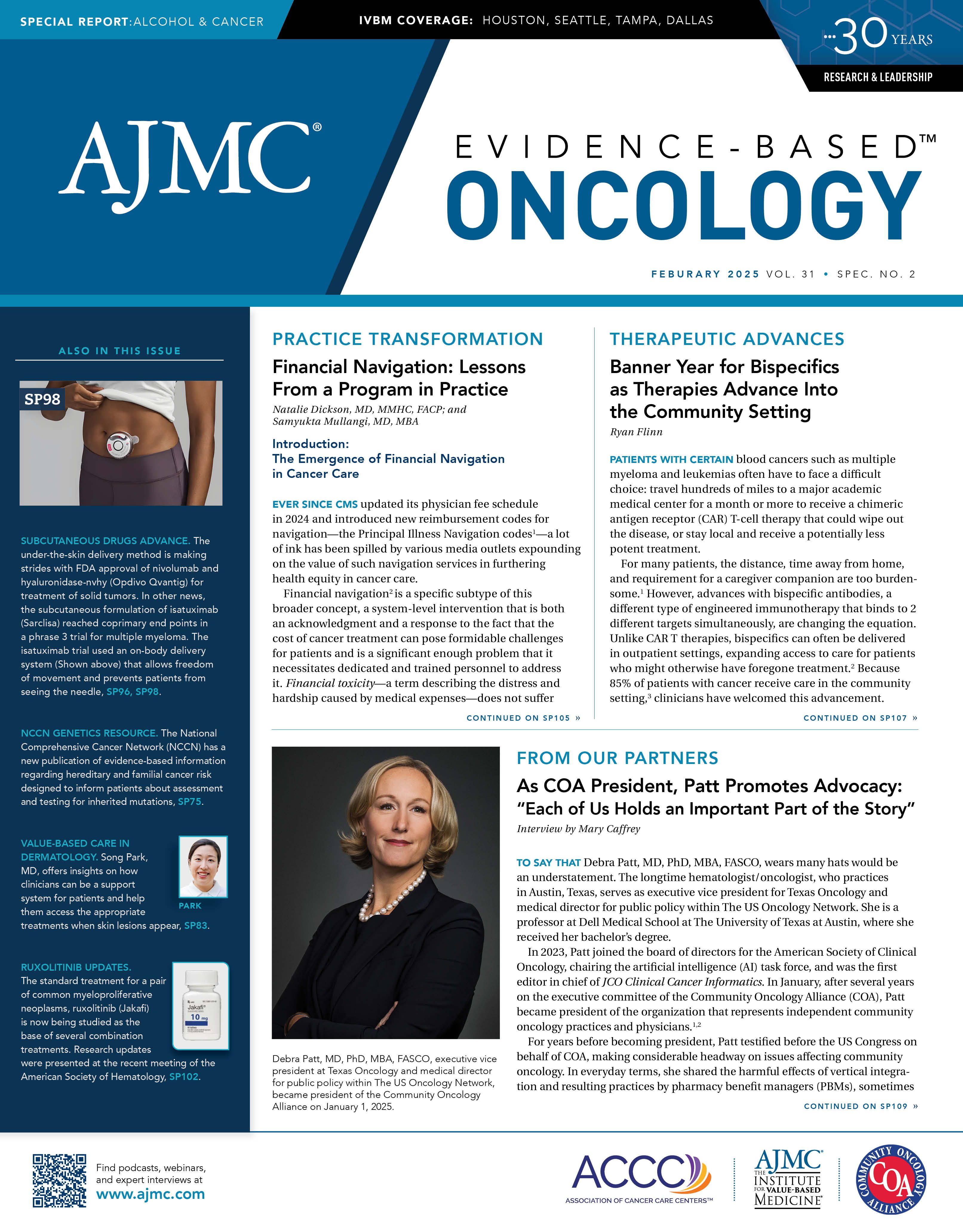- Center on Health Equity & Access
- Clinical
- Health Care Cost
- Health Care Delivery
- Insurance
- Policy
- Technology
- Value-Based Care
Rikki Cannioto, PhD, EdD, MS: “There Is a Gap in Public Health Awareness”
Rikki Cannioto, PhD, EdD, MS | Image: Roswell Park CCC

What does a cancer epidemiologist have to say about the recent US surgeon general’s report about alcohol and cancer risk? Rikki Cannioto, PhD, EdD, MS, is an assistant professor of oncology in the Department of Cancer Prevention and Control at Roswell Park Comprehensive Cancer Center in Buffalo, New York. Cannioto is also a specialist in ovarian cancer epidemiology and focuses on the mechanisms of physical inactivity, obesity, and lifestyle that affect cancer risk. She answered questions from Evidence-Based Oncology (EBO) about the report and the call for warning labels on alcohol.
EBO: What were the most important takeaways from the surgeon general’s report on alcohol and cancer risk?
Cannioto: Alcohol consumption is the third leading preventable cause of cancer risk, following smoking and obesity. [Although] most Americans understand that excess body weight and smoking are associated with increased cancer risk, there is a gap in public health awareness about the causal link between alcohol and cancer risk, which has persisted for decades. However, there is now sufficient scientific evidence to show a causal link between alcohol consumption and increased risk of developing at least 7 cancers, including cancer of the breast [in women], colorectum, esophagus, liver, mouth [oral cavity], throat [pharynx], and voice box [larynx].
EBO: Research on the links between alcohol and risk in certain cancers has been ongoing for many years. Why do you think it has taken so long for a report of this high profile to be released?
Cannioto: Although a link between alcohol and cancer risk began to emerge in the 1980s, numerous high-quality publications in recent decades have solidified our understanding of the causal biological pathways underlying the associations of alcohol consumption with increased risk of developing at least 7 cancer types.
EBO: Do you think having a report from the surgeon general will help open the doors to communication between doctors and patients about alcohol risks?
Cannioto: There is a growing body of scientific evidence showing that a constellation of healthy lifestyles, including being physically active, maintaining a healthy body weight, eating a healthy diet, limiting alcohol, and avoiding smoking, are conducive to cancer prevention. [Although] clinical care teams routinely counsel patients about the well-established risks of smoking and obesity, the new surgeon general’s advisory will better position clinicians to inform patients about the established associations [between] alcohol consumption and increased cancer risk, which will heighten public awareness. Importantly, publication of this report may be leveraged to incorporate alcohol screening and referral for intervention or treatment as needed.
Reference
US surgeon general issues new advisory on link between alcohol and cancer risk. News release. US Department of Health and Human Services; January 3, 2025. Accessed January 14, 2025. https://www.hhs.gov/about/news/2025/01/03/us-surgeon-general-issues-new-advisory-link-alcohol-cancer-risk.html

